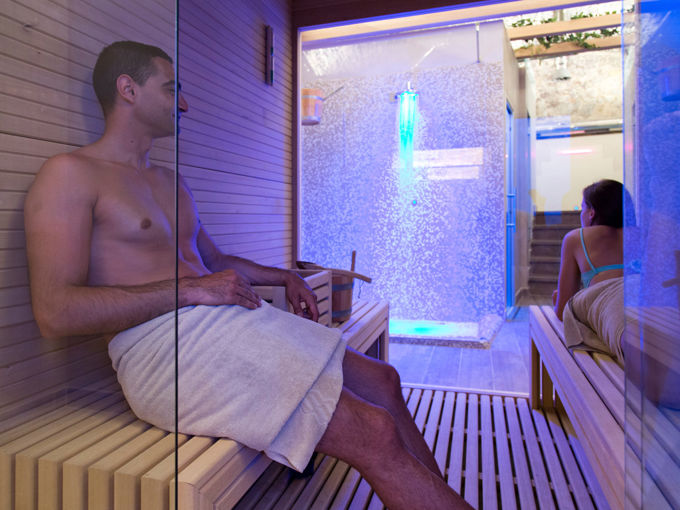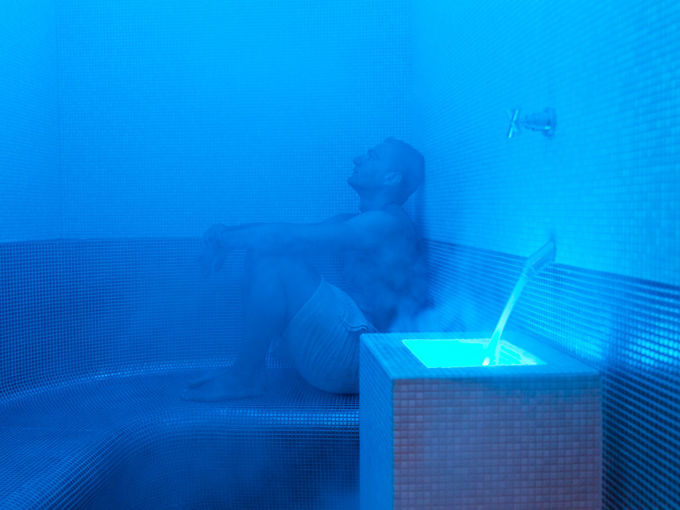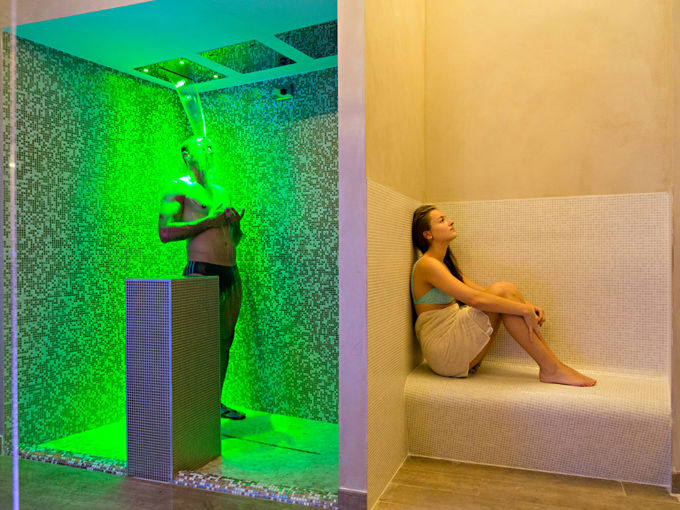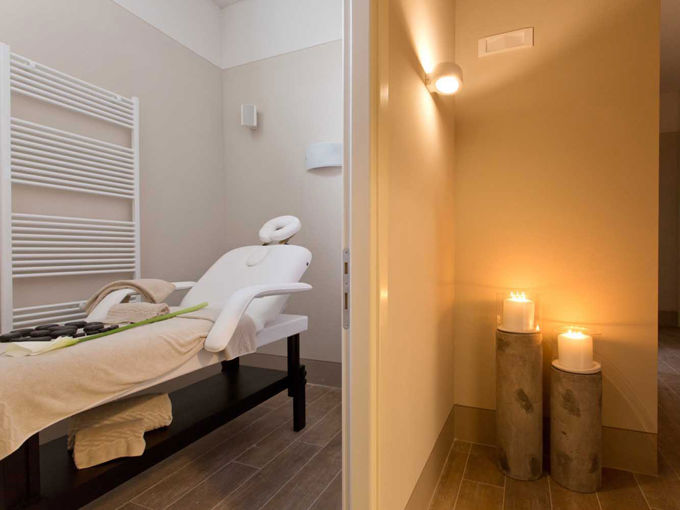Sauna
The Finnish sauna is the original sauna, or more precisely, where the temperature reaches 80-100 ° C, inducing copious perspiration, while the relative humidity does not exceed 10-20%, except when water is thrown on the stones. Sometimes essential oils are added to the water for a soothing effect, for example, essences of pine or eucalyptus.
Generally taking a sauna involves alternating a certain amount of minutes in the sauna with cold baths or showers. A sauna or "heat bath" eliminates skin impurities and toxins through sweating, as well as resulting in loss of water weight. The most evident effect of the high temperature is sweating, the mechanism which regulates body temperature, keeping it as close as possible to 37° C. Through sweating the body eliminates water and toxic substances. The increase in body temperature has beneficial effects on the muscles, which relax and become less tense.
The metabolism and heart rate increase during a sauna, promoting vasodilation, which makes the blood less "viscous” and thereby facilitates the blood flow through the body. Heat can also be beneficial to those suffering from respiratory diseases and for promoting faster muscle recovery (facilitating the breaking down of lactic acid), as well as having a sedative effect on nerve endings and improving peripheral circulation.










